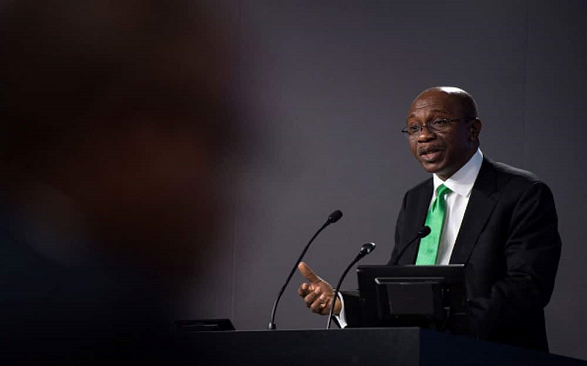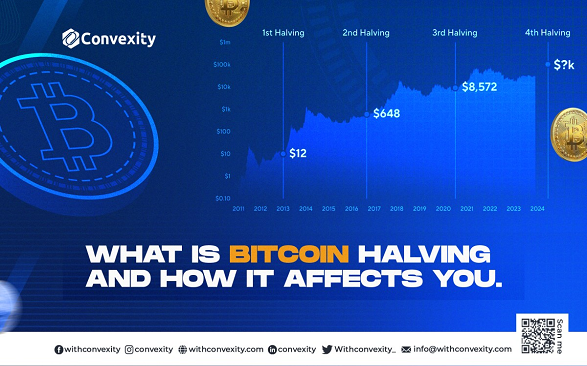by Abiola Akeju, Guest Writer
Introduction
Patrik Anum just received his NGN950,000 (about USD600) balance for supplying building materials for a new office block in the heart of Kaduna, Nigeria. After settling all costs and expenses, Patrik made NGN555,342 profit (about USD350). One would think he would deposit this money into his bank. But no—he’s part of the growing statistics that make crypto a hot topic in Africa. Instead, Ptrik checks his trusted local exchange and converts his Naira for USDT to protect his earnings from inflation. With Nigeria’s inflation numbers 32.46% in 2024, the choice seems rational. Since USDT is a stablecoin, it simply helps Patrick save in dollars, without risk of losing value due to volatility.
This might just be one case in Nigeria, but the trend is the same across the bustling populations of Africa. According to Statista, the number of people in the cryptocurrency market is expected to reach 53.89 million by the end of this year. Africans are not just adopting crypto. The adoption is happening at a scale that often outpaces their European counterparts. For instance, Nigeria is the second fastest-growing crypto destination in the world, with digital assets becoming very common among its youth and even adults.
Increased adoption is not a surprise to many. In a continent where existing financial infrastructures in many countries are not as smart as the fast-growing, highly mobile and techy African youths, millions of youths are turning to cryptocurrencies to fill the gap. In the article, we will examine the rise of cryptocurrency adoption in Africa, the drawbacks, and other challenges.
The Promise of Crypto
One of the biggest benefits of cryptocurrency’s foray into Africa is financial inclusion. With crypto, people can own digital assets, trade, and carry out important financial activities. The possibilities crypto opens up for Africans are endless and hard to fully comprehend. Crypto connects everyone with an internet connection to the global financial system, making the world feel like a global village.
Access to financial inclusion means citizens get access to cheaper cross-border remittance services. Unlike the European Union and other regions with closely linked economies, Africa’s economy remains fragmented. Although the African Union and other inter-country agencies have made efforts to encourage closer integration, success has been limited. This economic isolation makes it challenging to send money across borders. For example, transferring funds between African countries can be a headache, with delays and high fees being major stumbling blocks.
However, with crypto gaining a foothold in the region, this problem is being addressed in a spectacular way. Many companies now use stablecoins—a utility of cryptocurrencies—to help people move value across borders. These companies rely on individuals with rich market knowledge to provide the required liquidity and settle transactions.
“Blockchain’s potential is endless, especially for the African continent, where economies are growing faster than financial systems in many jurisdictions,” said Sylvester Kalu, CEO of LEDiG Technologies, one such company leveraging stablecoins to facilitate payments across the region.
Crypto not only make cross-border remittance possible but does so with unparalleled speed and at a fraction of the cost. Diaspora remittances from migrants abroad to their dependents at home have been on the rise thanks to low cost, courtesy crypto. Behind many of these transactions are stablecoins, the “magic” factor bringing Africans closer than before, encouraging commerce, and better trade with partners in other regions.
Although some lose money trading crypto assets due to uninformed trades or a lack of crypto education, many Africans see crypto trading as a means of financial empowerment. Companies like BreetApp provide crucial services that enable people to participate in this market. It’s not uncommon to hear stories of people benefiting from airdrops and cashing out financial rewards.
For Africa, cryptocurrencies are a financial tool that many have leveraged to level up with Western counterparts and navigate the dynamic financial market.
The Downside to Crypto Adoption
For starters, cryptocurrency adoption in Western countries is, relatively, more streamlined, with preliminary regulations already in place to checkmate bad actors. Regulation means institutional players could invest in the market, making the market grow even larger. Although one could say it’s the case of using a long stick to test the depth of waters. This is because many traditional actors’ crypto investments are made with caution. A great example is the case of Ontario Teachers’ Pension Plan (OTPP), which invested a total of US$75 million in FTX—only a tiny fraction of its total holdings of around $246.1 billion in 2021. They lost it to the FTX crash.
Regulations have also enabled companies like Coinbase to create structured entities and offer streamlined financial services to residents, leading the crypto market to one of its greatest rallies in 2021. Others, like MicroStrategy and Square, hold a substantial amount of bitcoin and other digital assets. This is only possible with the fairly adequate regulatory structures that exist in these jurisdictions, enabling cryptocurrency to grow significantly, dragging the host economies along.
These structures are largely absent in Africa. Aside from lacking adequate structures to protect users from bad actors, there has largely been a lack of clear laws regulating the many jurisdictions in the African crypto scene. In 2021, the Central Bank of Nigeria instructed its banks to desist from facilitating crypto transactions, sending shockwaves across the industry and breaking the crypto industry momentum that had started during the 2019 pandemic. It would take a few years for the industry to completely recover. Although the Nigerian SEC has released rules focused on issuing licenses, protecting users, and streamlining cryptocurrency transactions in the country, the country still needs to put more structures in place and encourage more industry thought leaders to contribute to its process.
The story is similar everywhere. According to a Ghanaian finance ministry official in 2023, a cryptocurrency ban was still in place in the country. The Bank of Ghana had earlier passed a circular restricting banks from facilitating crypto transactions with their facilities in 2022, just a year after the CBN passed a similar circular.
Almost every other African country has either outrightly banned citizens from transacting in crypto or warned them about the risks. These actions are understandable, as governments should always look out for their citizens. However, merely giving warnings without taking concrete actions to regulate the industry so citizens can safely participate has either locked many countries out of immense possibilities or exposed their citizens to bad actors through scams, hacks, and outright manipulation by some bad actors in the industry.
South Africa has the most robust crypto regulation on the continent. In fact, South African regulators have issued at least 240 crypto licenses as of January 2025. In contrast, although Nigeria published a crypto rulebook in 2022, it only started receiving applications from June last year and has issued only 2 licenses under its Accelerated Regulatory Incubation Programme (ARIP). The country’s legal battle with Binance, which resulted in one of Binance’s executives spending months in Nigerian custody, also highlights the need to create a more crypto-friendly environment.
Lack of adequate regulations, rampant scams, and inadequate blockchain education are some of the greatest challenges for adoption on the continent. Regulations are important to protect users, even when companies fail. For example, FTX failed in 2022, locking out user funds and sending the entire market downhill. Although the court case has taken a while, Sam Bankman-Fried has been sentenced to jail, and according to the latest court filings, FTX creditors will soon start receiving their monies.
Company failure should not always mean investors will lose their funds and just move on. Only a robust regulatory framework will make this possible.
Conclusion
The impact of cryptocurrency adoption in Africa is taking shape. Although regulatory oversight, a crucial element for any viable crypto market, is yet to take form in many cases, the rewards of crypto adoption is seeping in, gradually taking form.
While the continent has shown remarkable enthusiasm for digital currencies, with countries like Nigeria leading global adoption rates, the absence of a cohesive regulatory framework is holding it back from reaching its full potential. The promise of crypto in Africa lies in its potential to democratize finance, offering tools for financial inclusion, cheaper cross-border transactions, and empowerment through trading opportunities. Adequate regulation means innovators like Nostra Finance can use DeFi to unlock value on a scale never seen before.
The journey, however, is still fraught with pitfalls, including a lack of proper crypto education, and regulatory ambiguity that often stifles growth. Companies like Bitoasis have also played a crucial role in enabling Africans to seamlessly integrate bitcoin payments into their businesses, helping businesses by serving as an important link to customers from different jurisdictions.
For Africa to truly harness the power of cryptocurrencies, it must look towards models like South Africa, where regulatory efforts have fostered a safer environment for crypto activities, and the government openly supports crypto innovation. The continent’s regulators need to move away from warnings or bans towards creating clear, proactive laws that encourage innovation while safeguarding users.
Beyond adoption, Africa’s next move must be towards solving financial inclusion problems on a larger scale, and building a future where crypto can thrive as a tool for economic empowerment, not just a speculative asset.
Abiola Akeju is a seasoned Web3 Technical Writer with six years of experience breaking down complex blockchain concepts into clear, insightful content. He’s passionate about the future of decentralized technologies and its impact on society. His content explores the intersection of Web3 and AI, delivering in-depth analyses and thought-provoking pieces that drive positive change. His work is featured on Medium and LinkedIn, where he engages with a growing audience of tech enthusiasts and industry professionals. He is a Business Developer with LEDiG Technologies. Connect with him here.
Discover more from Crypto Asset Buyer
Subscribe to get the latest posts sent to your email.





